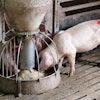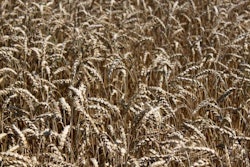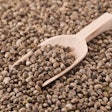FEFAC welcomes the European Commission report on the development of plant proteins in the EU published on Nov. 22. FEFAC hopes the new political interest at both EU and national level will create the momentum to stimulate the availability, quality and competitiveness of EU plant protein production. Compound feed manufacturers are prepared to continue to source more EU grown proteins to participate in the development of economically viable chains, provided they are a feasible option compared to traditional protein sources. FEFAC stresses the importance of animal nutrition science and precision livestock feeding as key tools for making the most efficient use of available protein sources, for example by offering the best amino-acid profile to respond to physiological requirements of farm animals as well as reducing nitrogen emissions and nutrient leakage.
FEFAC President Nick Major presented the views and recommendations of compound feed manufacturers at the conference The Development of Plant Proteins in the European Union, held on Nov. 23 in Vienna, Austria. He stated that “the ambition to stimulate EU protein crop production is very sensible given the reduced importance of the EU as an importer on the global market of soybean meal in combination with the dependency on very few exporting countries.”
Major also pointed to the report’s finding that the development of premium feed/food markets will be the main driver for the market uptake of vegetable protein grown in Europe. In that light he encouraged the European Commission to harmonize the rules for product claims for food of animal origin fed on “non-GM feed” in order to guarantee a level playing field and increase market transparency. Major also reminded that it is unrealistic for the EU to become entirely self-sufficient for its protein needs, meaning facilitating the sourcing of responsibly produced protein-rich feed materials is also of great importance.











